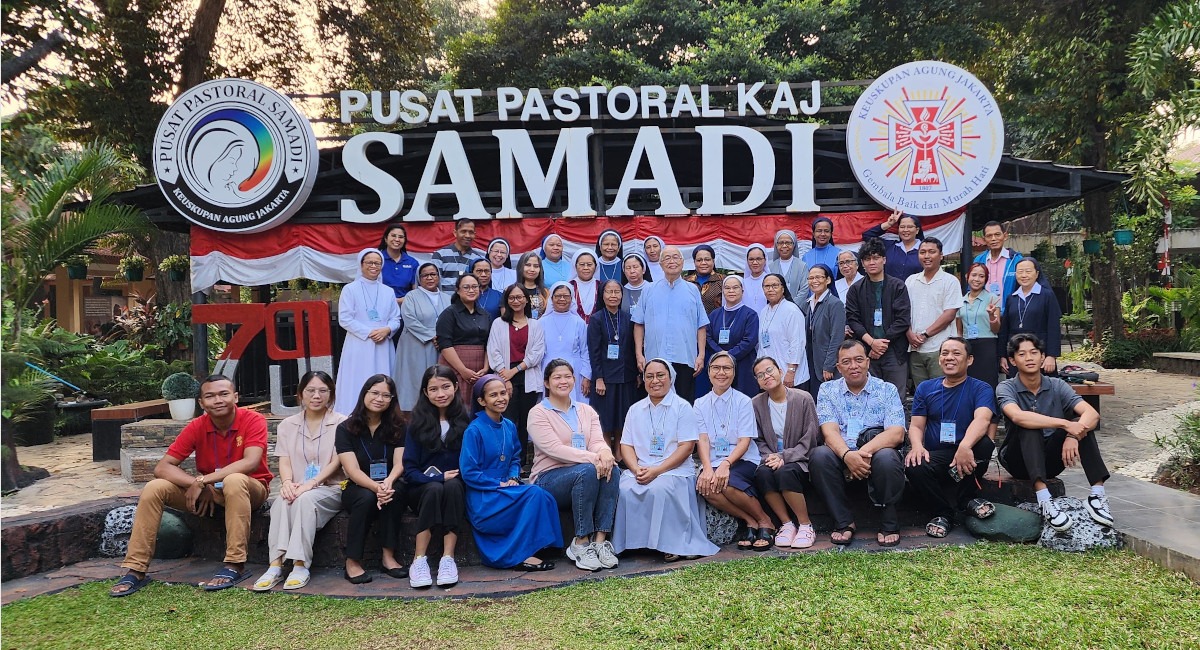
The increasing number of migrants and refugees arriving in Indonesia, especially in Jakarta, has encouraged the Church, as a humanitarian social movement, to take a more proactive role in addressing this situation.
“The Church wants to empower priests, religious brothers and sisters, and lay people to serve and organise training programmes to educate migrants, refugees, and victims of human trafficking. They need to be equipped with the knowledge and skills necessary to serve,” said Fr Ignatius Ismartono SJ, Director of Sahabat Insan (Friends in Humanity), an apostolate for Indonesian migrant workers and victims of human trafficking in Jakarta.
From 23 to 25 August, Sahabat Insan, in collaboration with Talitha Kum, the various social initiatives of the Archdiocese of Jakarta, and Jesuit Refugee Service Indonesia, organised a Workshop on Pastoral Care for Migrants and Refugees at Samadi Klender Pastoral Center in Jakarta. The workshop was funded by the Hilton Foundation, coordinated by the sisters in the Dicastery for Integral Human Development.
Around 50 participants, mostly religious sisters, attended the workshop. They are involved in serving not only migrants and refugees but also victims of human trafficking. The participants were given a background of the situation, listened to inputs from various resource persons, engaged in role plays, and analysed case studies to help them implement pastoral care programmes effectively.
“Migrants, refugees, and victims of human trafficking need to be approached and motivated to empower themselves, organise their lives, and build their communities,” said Fr Ismartono. “A continuous programme needs to be in place to fully achieve these goals.”






